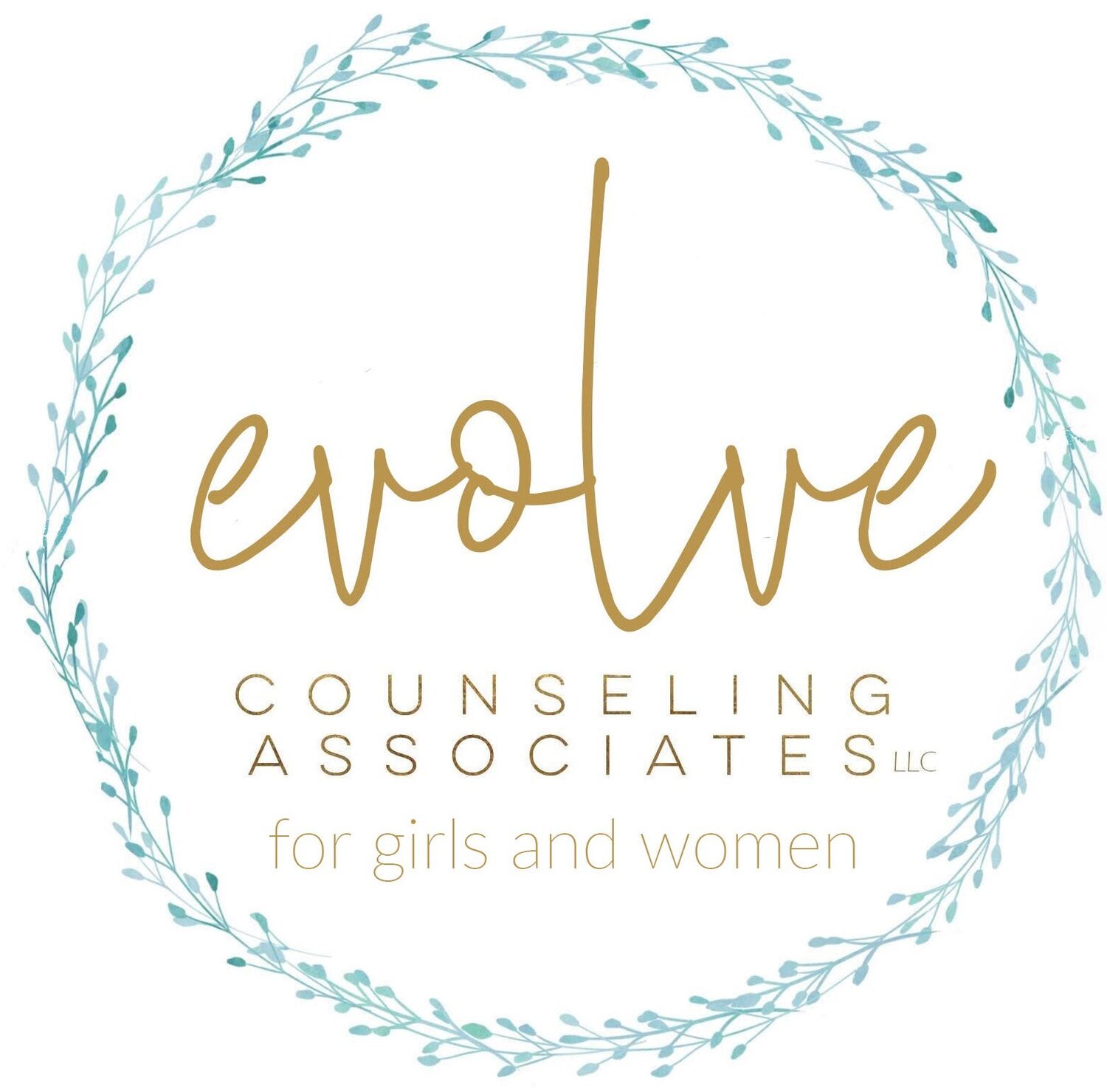HOW EVOLVE COUNSELING ASSOCIATES HELP WITH EATING DISORDERS
Eating disorders are mental and physical illnesses that are a result of a combination of biological, psychological, and sociocultural factors. Most common eating disorders include Anorexia Nervosa, Bulimia Nervosa, Binge Eating Disorder, Avoidant Restrictive Intake Disorder, and Otherwise Specified Feeding and Eating Disorder.
Eating disorders affect people of all ages, races, religions, ethnicities, sexual orientations, and body sizes. While they can impact all genders, the highest prevalence is amongst girls and women. According to the National Eating Disorders Association, it is estimated that 20 million women will have an eating disorder at some point in their life.
SIGNS & SYMPTOMS OF EATING DISORDERS IN WOMEN:
Emotional and/or Behavioral Symptoms:
Preoccupation with weight, shape, size, food
Body dissatisfaction
Body dysmorphia
Mood swings
Low self-esteem
Social withdrawal particularly events with food
Fear of choking and/or vomiting
Layered clothing in warm settings
Drinking excessive amounts of water and/or non-caloric beverages
Secretly eating or hiding food and/or wrappers/containers from food
Recurrent episodes of consuming large quantities of food within a short period of time
Feeling of losing control, guilt, shame, and/or distress associated with eating
Refusal to eat certain foods or extreme limiting in variety of food intake
Excessive or rigid exercise routine
Purging via vomiting, excessive use of laxatives, and/or overconsumption of diuretics
Skipping meals and or taking reduced portions of food at regular meals
Frequent Dieting
Physical Symptoms:
Abnormal lab results
Amenorrhea
Extremely low heart rate
Swelling around salivary glands
Calluses on hands, knuckles
Irregular sleep patterns
Fainting
Dental Problems
Dry skin and hair, and brittle nails
Fine Hair on Body (lanugo)
Sensitivity to cold
Changes in weight (loss and/or gain)
WHAT TO EXPECT IN COUNSELING FOR EATING DISORDERS
Because eating disorders impact not only the mind but also the body, it is best practice for therapists to treat eating disorders using a comprehensive and collaborative approach involving professionals with a variety of expertise. Research indicates that recovery is most often achieved when an individual is treated by a team that includes but is not limited to a therapist, dietician, doctor, and/or psychiatrist. Further, due to the isolating nature of eating disorders, it may also be recommended that the client’s family and/or social supports be included in the treatment process when and if possible.
Evolve Counseling Associates’ therapists believe in and prescribe to Health at Every Size Principles. In session, your therapist will cater to your specific emotional and/or behavioral needs with evidence-based treatment approaches such as Cognitive Behavioral Therapy, Enhanced Cognitive Behavioral Therapy, Family Based Therapy, Interpersonal Psychotherapy, Dialectical Behavioral Therapy, Acceptance and Commitment Therapy, and Exposure and Response Prevention.
HOW TO GET STARTED WITH EATING DISORDER COUNSELING IN NASHVILLE
Devon Bridgwaters and Anna Bridges work mainly with our clients with Eating Disoders.
